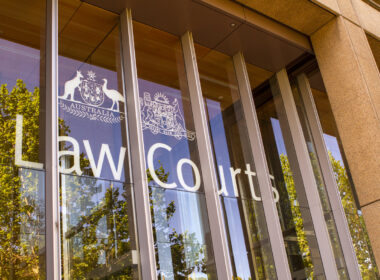New Fair Work rules introduced in March require law firms to rigorously report the hours and shift times of graduate lawyers. But young lawyers are sceptical as to how and whether the rules will be enforced.
Jenny* began her legal career in 2018 at the Sydney office of an international law firm. Her days as a clerk and graduate followed a script familiar to many young lawyers: long hours spent eyeing off every six-minute interval, and working late into the night at the beck and call of demanding partners and clients.
She’d arrive in the office by 8am and, although the “regular hours” in her contract proscribed an eight-hour workday, she would regularly stay later than 10pm. Not because she always had work to do – but mostly “just in case the client calls back with something urgent”.
“We’d have this situation where human resources were telling us that we should leave at 6pm, because we wouldn’t be paid overtime. But then the partners would force us to stay back and do more work,” Jenny says.
“On one hand you have HR saying, ‘Go home, we aren’t going to record your extra hours’. And on the other hand, you have partners forcing you to stay, thinking that HR will pay for the overtime.”
New rules introduced by the Fair Work Commission aim to curb the type of situation Jenny faced by requiring law firms to record and monitor the start and end times of staff who are on annual salary agreements and covered by the national Legal Services Award. The rules, which came into force on 1 March, apply to graduate lawyers not yet admitted to practice, as well as clerks, paralegals and legal administrative staff.
But young lawyers are sceptical as to whether and how the firms will implement the mandatory reporting procedures.
“In my experience, if you do report overtime hours, you get punished for it,” says Jenny.
“When I did a clerkship, the firm told us we could record overtime hours, but actually blocked everyone from accessing the timesheet platform and refused to fix it. When I informed HR about the late hours being forced upon me, they kicked me out of the graduate program. They made up some reason that I had not been working enough hours, even though I was in from 8am to 10pm during my clerkship. HR said I was only in from nine to five.”
The new rules were spurred by allegations of overworking and underpaying young lawyers that arose during the Hayne Royal Commission. Stories emerged in the Australian Financial Review of “traumatised” graduates sleeping under their desks and working gruelling hours for weeks on end to meet punishing deadlines.
Firms now must advise graduates, clerks and paralegals in writing as to how their salary is calculated – including what overtime hours are expected, and when penalty rates will apply. For example, if a lawyer starts a shift less than 10 hours after a previous shift has ended, they should be paid 1.5 times the minimum hourly rate. Any graduate lawyers working after 10pm and starting the next day before 8am – as Jenny did often – would attract this penalty rate.
Most law firms already purport to calculate such penalties into their annual salary offer.
“The award salary for a graduate lawyer is around $55,000 and we pay significantly more than that,” says Anna Sparkes, Chief People Officer at Gilbert + Tobin.
“That’s why we have been pretty confident that the extra salary buffer would cover any additional hours outside the eligibility of the Legal Services Award.”
Gilbert + Tobin was one of the first firms subjected to investigations by SafeWork Australia following the Hayne Royal Commission. Sparkes says her firm took the allegations of overworking young lawyers seriously and commissioned an external consultant to go back over six years’ worth of timesheets to ensure employees were being paid correctly.
“We have found a few issues,” she says. “We’ve done an internal review and found there might be some people eligible for back pay. We also had a meeting with all graduates who are currently working here, and we briefed them and talked to them about the issues around how they record their time. We discovered there were some incorrect assumptions we [the firm] had made about recording of time.
“For example, a lot of grads just record their billable time and they don’t put in extra admin time. We put in an assumption of that admin time and some of them said, ‘Well, you’re being a bit conservative there, you might want to rethink it.’ So we did.”
LSJ approached all the “Big Six” top-tier Australian firms to discuss how they would satisfy the new rules, but only Gilbert + Tobin offered a detailed strategy that incorporates direct feedback from its graduate lawyers. Other firms provided a short statement acknowledging they would be updating time recording systems and payroll but did not specify how and whether they would conduct a thorough review into past payments.
LSJ also spoke with a number of graduates at the top-tier firms, who, like Jenny, had concerns over whether they would feel confident to clock overtime into their timesheets at the firm’s expense.
Mia Pantechis, a senior associate in the employment law team at Maurice Blackburn in Sydney, says she has represented “a handful” of young lawyers in legal disputes with former firms. The disputes stem from the young lawyers complaining about pay and working conditions and later being unfairly dismissed or bullied out of the firm.
“I have acted for junior lawyers in their first couple of years of employment who have raised issues about pay disparity, harassment and bullying in the workplace,” Pantechis says.
“They have found themselves in a situation where they have been victimised and sacked as a result of raising those issues. It speaks to the culture of law firms and the power imbalance that exists at that lower level.
“The positive to come out of the new rules is they shift the onus back to the firms to ensure they are properly monitoring the pay and working conditions of graduate lawyers and legal support staff, making sure pay is appropriate when compared to the hours being performed.”
The Legal Services Award does not cover lawyers recently admitted to practice. The legislation deems that, once a graduate completes practical legal training and receives their practising certificate, they become a qualified professional and can negotiate a higher salary.
But most young lawyers do not immediately have opportunity to negotiate a salary; and acquiring a practising certificate does not immediately instil confidence to demand higher pay.
“Young lawyers in their first years of practice are still vulnerable,” says Pantechis. “The billable hour model can foster a culture of long hours and result in unsafe working conditions, and because of their vulnerable position, young lawyers fear speaking up.”
Nick Brown, a lawyer at LegalVision who rejected a career in top-tier law when he left Clayton Utz in 2014, says lawyers will continue to record billable hours but will underestimate the extra time spent in the office doing work that can’t be billed for.
“Realistically, the pressure that is brought to bear on grads is very subtle, it’s not direct. It’s just: this is what everyone has always done, and this is what everyone is expected to do,” he says.
“I can’t see the firms setting up new systems to track hours, when there is an easy way in terms of billable time sheets in assessing what people are doing and just using that instead. The real hours will typically be massively underreported.”
*name changed for anonymity




